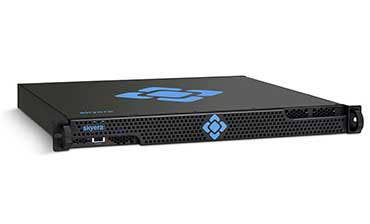Western Digital's HGST Acquires Skyera, Plans Enterprise Flash Solutions

Western Digital Monday said its HGST flash storage business acquired Skyera, a developer of all-flash storage arrays.
The acquisition, the terms of which were not revealed, brings Western Digital a step closer to being a provider of one of the industry's widest lines of flash storage hardware and software.
Western Digital, along with Dell and a couple of flash storage chip developers, was an early investor in Skyera.
[Related: The 10 Coolest Flash Storage And SSD Products Of 2014]
Skyera develops two lines of all-flash storage arrays along with its own flash-optimized storage operating system.
Skyera's Skyhawk series of solid-state storage systems, introduced in 2012, are priced at less than $3 per GB of raw capacity. The Skyhawk line features low-cost MLC NAND flash.
Next year, Skyera plans to release its Skyeagle series of all-flash storage arrays targeted at mission-critical enterprise applications. Skyera claims the Skyeagle, like the Skyhawk, will be priced lower than hard drive-based arrays.
With the acquisition, Western Digital and HGST offer bare SSDs, all-flash arrays, and flash storage software. Western Digital is also one of the two leading providers of hard drives, and also develops a line of SOHO and small-business storage devices and appliances.
The Skyera acquisition might be good news for Western Digital partners, said Dominic Daninger, vice president of engineering at Nor-Tech, a Burnsville, Minn.-based custom system builder with a focus on the high-performance computing market.
"Skyera might fit our business," Daninger told CRN. "It certainly merits a look. In our market, performance is very important. We currently do not offer all-flash arrays to our customers yet, but instead offer various arrays with NVMe or RAID-0 cache to customers in the computer-aided engineering market. Those customers can have files with capacities in excess of 10 GB, and need to move them on and off arrays quickly."
Nor-Tech has for now not done much with Western Digital's existing disk-based appliances, Daninger said. "We don't spend a lot of time on the lower end of the storage market."
Todd Swank, senior director of product marketing at Equus Computer Systems, a Minneapolis-based custom system builder for the enterprise and high-performance computing markets, told CRN via email that while the demand for storage overall continues to soar and will do so for the foreseeable future, the vendors, including hard drive manufacturers, all recognize that long-term trends are moving to flash storage because of the performance benefits customers can get.
NEXT: Building Western Digital's Flash Storage Business, One Buy At A Time
"Since those trends favor the large flash suppliers like Intel and Samsung, the hard drive companies need to continue to know the products and opportunities better than anyone so they have a long-term plan to stay viable in the storage industry. I think both WD and Seagate continue to make smart moves, which in the long run will benefit their employees, customers and shareholders," Swank wrote.
Skyera is the latest in a string of flash storage acquisitions Western Digital has made in the past couple years.
The biggest so far was Western Digital's 2011 acquisition of Hitachi Global Storage Technologies (Hitachi GST) in a $4.3 billion deal that gave Western Digital a huge lift into the flash storage, SSD and enterprise hard drive market.
The company in June 2013 acquired sTec, an early pioneer in the SSD business whose business had been faltering at the time. sTec gave Western Digital a wide range of technologies including flash and DRAM memory, SATA and PCIe SSDs, embedded SSDs, flash storage devices, and flash storage and caching software.
A month later, Western Digital acquired Velobit, which developed software for using flash storage in virtualized desktop environments.
It followed up in September 2013 with its acquisition of Virident, developer of the FlashMAX II PCIe flash storage card based on MLC NAND memory technology for deployment in servers, as well as the FlashMAX Connect software.
Western Digital did not respond to a request for further information in time for this story.
However, HGST president Mike Cordano said in a statement that his company plans to build on the long-term strategic partnership between Western Digital and Skyera to help customers with their cloud and enterprise data center infrastructures. "Flash solutions represent a large, exciting growth area for HGST and uniquely complement our existing portfolio," Cordano said.
PUBLISHED DEC. 15, 2014